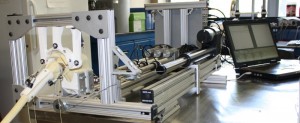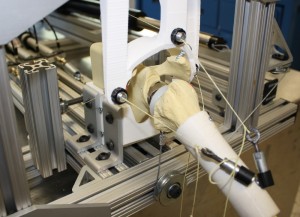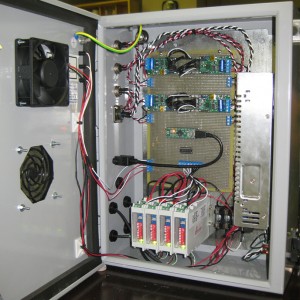
TSI has recently released a biomechanical simulator to support cutting edge research at the Human Mobility Research Centre at Queens University in Kingston.
The test machine was developed to enable the research team to study the stability of prostheses, in this case a reverse shoulder arthroplasty.
TSI developed and supplied a fully integrated system, comprising of three series-elastic actuators, which reproduce the muscle forces, and a fourth actuator to apply external perturbations (dislocations) to the joint. The four channels operate independently or coupled, using displacement and/or force control and have real-time tracking of the loads and position.
The system provides a high force fidelity, low impedance and excellent control bandwidth solution at a low overall cost. It is powered by modular and expandable custom electronics hardware and controls software developed in-house by TSI, and most importantly, it has an intuitive, open-source interface.
Not only did we provide an effective physical solution, we provided a platform for innovation, allowing the team at Queens to focus their efforts on what is important – the research itself.




